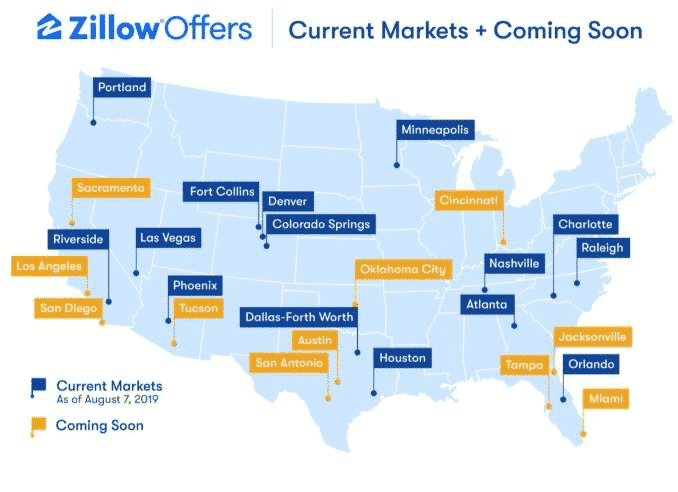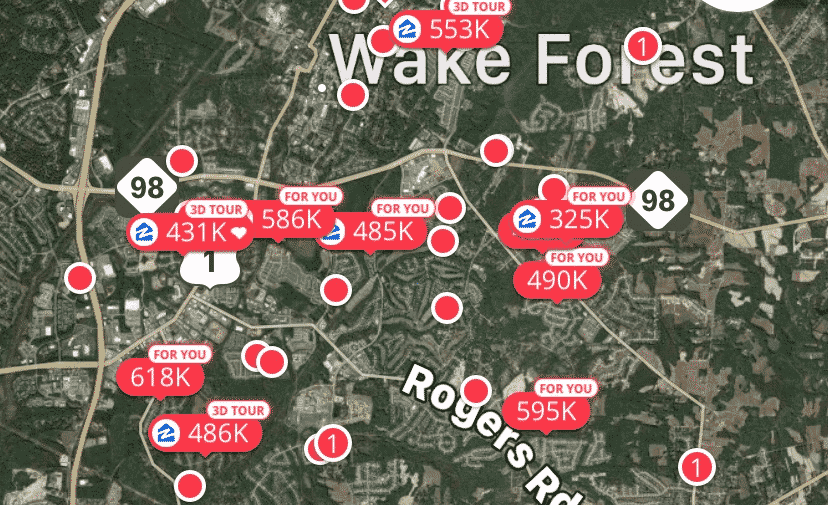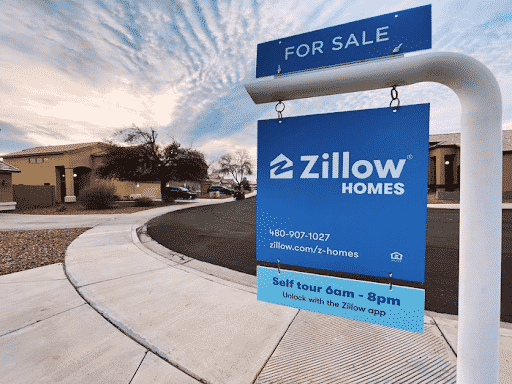Zillow shuttered its iBuying program Zillow Offers this week—citing market volatility, a lack of necessary human resources, and a $420 million Q3 loss among the reasons for its decision. Zillow Offers represents an uncharacteristic failure for this industry giant known for free and easy access to nearly every real estate listing in the country, its ubiquitous Zestimate, and its love-it-or-hate-it Zillow Premier Agent program.
For many inside the real estate industry, however, the sudden dissolution of Zillow Offers was an abrupt surprise but not a shock. The writing has been on the wall for a long time that the iBuying model, specifically the one Zillow was using, was destined to fail. Why did this particular house of cards finally come crashing down? Here are five reasons.
1. Zillow Offers Was Market-Focused, Not Client-Focused

A sustainable real estate business grows organically at the speed of relationships and is built upon measured success and community adoption. In short, a real estate agent, team, or broker will only grow as fast as the trust the community has in them.
Zillow Offers was not focused on building this trust. Instead, it was focused on creating an artificial market via what can only be described as brute force. In the second quarter alone, Zillow purchased more than 3,800 homes nationwide. That’s an average of more than 50 homes per month in every market in which they operate.
In August, they sought a first-of-its-kind, ultra-aggressive bond initiative worth $450 million to push the envelope harder and faster. This strategy was about gobbling up inventory as fast as possible and was not about sustainably serving communities nationwide.
What Can Agents Learn From This Mistake? If your business is driven solely by numbers and not by people and the sentiment in your community, your foundation is broken. Zillow saw a potential profit margin on homes and said, “Well, how many can we buy?”. Ask yourself instead, “Am I serving my balance sheet or serving my community?”
2. An Algorithm Isn’t a Substitute For an Agent
The Zillow Offers iBuying model depended on complex algorithms to determine a home’s value and what type of offer could be made to purchase and potentially resell a property for a profit.
It turns out that algorithms, no matter how smart they are, simply can’t replicate an agent’s expertise, experience, and local exposure. Trust us, the Zillow algorithm was pretty damn smart, but it’s no substitute for an agent with their feet on the ground in the communities in which Zillow was buying and selling.
The specific effects a local market may have on particular inventory (something The Close calls “Micro-Market Trends” in our CMA Strategy Guide) are very hard for iBuyers to account for accurately. Unless you’ve spent time on the sidewalk in a particular neighborhood, it’s difficult to price a home there with any precision.
What Can Agents Learn From This Mistake? This is less of a learning opportunity (most of you are already nodding your head vigorously in agreement) and more of a business opportunity.
Take stock right now of the segments of your market in which you’re an expert. Then, reach out to your farm area tomorrow with a link to a story about Zillow Offers and confidently assure your contacts that you are the market expert and resource for all things real estate.
3. Zillow Misjudged the Strength of Its Supply Chain

We’ve been hearing a lot lately about supply chain problems in the US and across the world. But in the case of Zillow Offers, the supplies that were crunched were those of human capital.
The people Zillow needed to execute its strategy, including home inspectors, general contractors, and “last mile” agents to dot the i’s and cross the t’s, simply weren’t there to support the volume of homes Zillow owned and was continuing to purchase.
What Can Agents Learn From This Mistake? If you’ve got an office admin, a preferred lender, inspector, handyman—in short, anyone who you work with to solve problems for your clients, this is your sign to send them flowers and a gift card. Let these people know how much you appreciate them.
Agents are often seen as one-person shows, but we know that couldn’t be further from the truth. Take stock of the human resources you regularly partner with to meet your goals and solidify those relationships today.
4. Zillow Offers Depended on a Consistent, Linear Market Trajectory, But That’s Not How it Works

In interviews given following the announcement of the demise of Zillow Offers, CEO Rich Barton said, “We’ve determined the unpredictability in forecasting home prices far exceeds what we anticipated. We could blame the current losses on exogenous market events, but it would be naïve to predict that unpredictable events won’t happen in the future.”
Wait, you mean to say that local real estate markets are largely cyclical and susceptible to external forces? Ultimately, what affects the value of a home on one street might not affect the value on another, let alone another town, region, or state? Who could have predicted that? (All the Realtors in the room, please raise your hands.)
Each real estate market is unique in terms of when and how deep it cycles in either direction, making it nearly impossible for a generalized algorithm to make accurate predictions—a factor that Zillow Offers’ algorithm didn’t accurately take into account.
What Can Agents Learn From This Mistake? In due time, the seller’s market will transition to a buyer’s market. Don’t listen to the national pundits about when and where this will happen. Instead, listen to your local market, and prepare your business for the shift. It may not happen for months or even years, but planning accordingly will help you avoid Zillow Offers’ mistakes.
5. Zillow Offers Tried to Create a Frictionless Process, But Real Estate Needs SOME Friction
The real estate transaction is time-consuming and not always easy. iBuying platforms like Zillow Offers, OfferPad, or Opendoor would suggest that it is downright hard—a process ripe for disruption. One of the major value propositions of these platforms is that it makes a long, challenging process quick and easy.
What I’m about to say might not win me any popularity contests, but this idea is just plain wrong. The real estate process shouldn’t be seamless. Buying a house shouldn’t be as easy as booking an Airbnb. Booking a condo in Miami Beach for Memorial Day is a weekend commitment. Buying a home is a decision with a life-long impact.
The friction in a real estate transaction functions as a check and balance on the process, ensuring that you’re making the right decision at every step along the way.
For some buyers and sellers in certain circumstances, an expedited, frictionless process could make sense. But, for the vast majority of residential buyers and sellers, the much-maligned friction iBuyers hope to eliminate effectively slows down the process. It slows it down just enough to give buyers and sellers the chance to change course if they realize they’re heading in the wrong direction.
What Can Agents Learn From This Mistake? Own your process. Don’t look at the home buying and selling process as a burden. Look at it as an opportunity to demonstrate your value as an essential advisor for each and every one of your clients. As a Realtor, you make a commitment to act in the fiduciary best interests of your clients. When was the last time those best interests included the phrase “hurry up”?
Your Turn
Have iBuyers been present in your market? Have they affected your real estate business? Tell us your thoughts and leave us your comments below.


